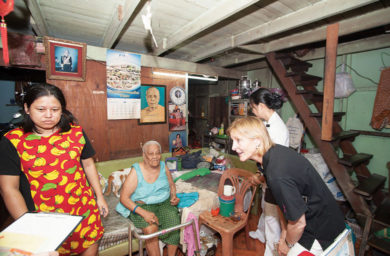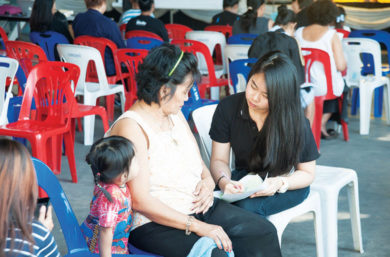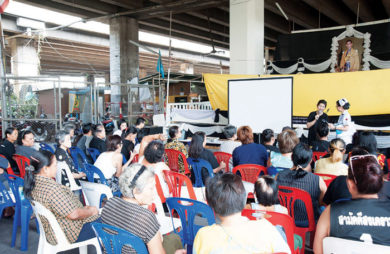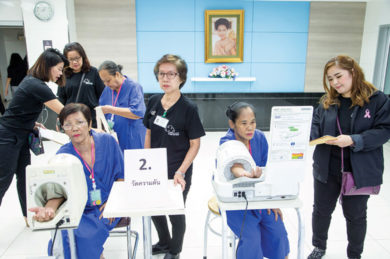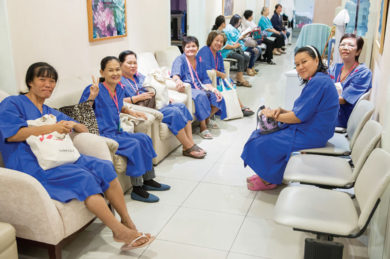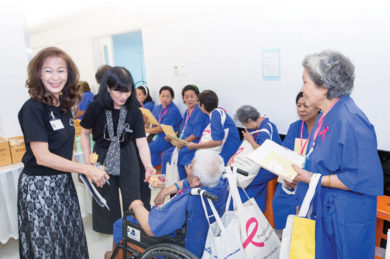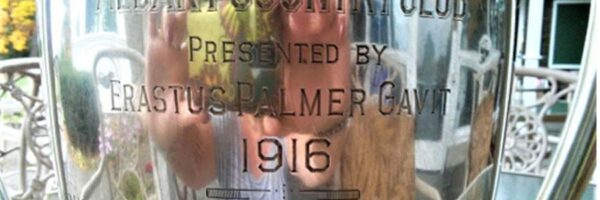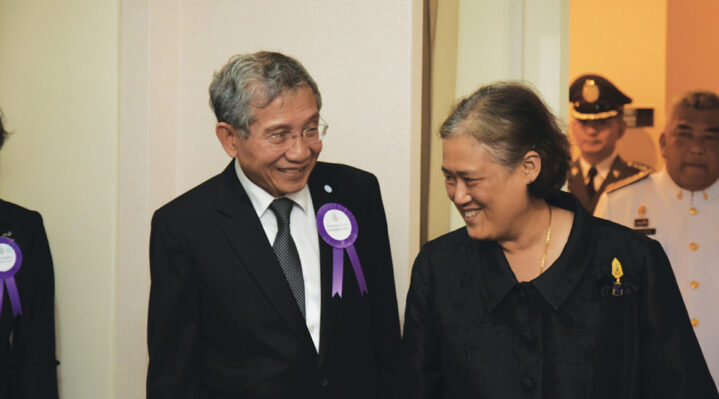
Breast cancer mammography
There has been a lot of discussion recently in the media discussing the risks of mammography for breast cancer diagnosis. According to Dr Kris Chatamra, who has had over forty years experience in the field of breast cancer, having been a senior clinician in the UK and an internal examiner at the Royal College of Surgeons in London, a lot of the information is from unfiltered sources and not accurate.
Modern mammography gives out very little radiation, compared with the equipment from 10-15 years ago. Mammography plus breast ultrasound, if carried out by an experienced breast radiologist and a good standard of equipment, are still the best screening investigations for breast cancer. It is also essential to have a thorough clinical examination by an experienced surgeon. The claim that only 85% of lesions can be identified by the most modern mammography is avoidable, if the above methods of examination are adhered to. Breast cancer has become the leading cancer killer of Thai women and it is Dr Kris’ sincere belief that patients, whatever their socio-economic background, particularly the under-privileged, deserve the very best technology and medical care available.
He has dedicated the last twenty-five years, as founder and honorary director of the QSCBC with his British born wife, Khunying Finola, to raising funds to provide the most up to date equipment and post-graduate training in the UK and US, for medical and nursing staff for the Queen Sirikit Centre for Breast Cancer (QSCBC). The centre has consequently become one of the most modern facilities internationally with a remit to raise the standard of breast cancer care in Thailand, offering the most modern approach to diagnosis and treatment. Despite being built up from nothing, based on the generosity of donations, the QSCBC has become one of the most up to date institutions for breast diagnosis, probably one of the best in the world.
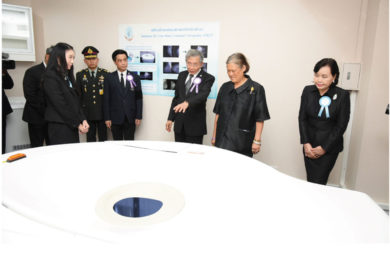
In March 2017, H.R.H. Princess Sirindhorn visited the new CT-mammography machine, at the Queen Sirikit Centre for Breast Cancer, the latest addition to the battery of equipment for the diagnosis and treatment of breast cancer at the QSCBC. The CT-mammography is the first complete unit in the world, which provides a real 3D picture of the breast. The extra clarity and complexity of the image supplements the information from the standard mammography and can greatly help in the planning of surgery and gives out very low levels of radiation.
H.R.H Princess Sirindhorn visiting the QSCBC’s new CT-mammography machine, with Dr Kris Chatamra H.R.H. Princess Sirindhorn visiting the chemotherapy facility. Patientswearing the latest scalp cooling equipment to prevent hair loss. The QSCBC was also the first recipient internationally of the most up to date tomosynthesis mammography, 3D mammography (the latest of three machines at the QSCBC), which due to the capability to add a contrast material provides a clearer definition of the breast image.
The addition of the latest thermography equipment measures differences of infrared emissions from the breast and can help to pinpoint lesions of abnormality.
Thermography gives out zero levels of radiation, which has been a controversial issue for patients and can be repeated as often as required. Some women are discouraged from having annual breast cancer screening due to the fear of pain and discomfort, but the CT- mammography and thermography do not require breast compression during the examination. These new technologies, however, complement the conventional mammography and ultrasound examination and do not operate alone.
In July 2017 the QSCBC, became the first institution in Thailand and in the region, to install nanostring technology. This advanced methodology, gives an analysis of a patient’s breast cancer gene profile and categorises the results into low, medium and high risk groups. The low risk group can be excluded from having unnecessary chemotherapy, so this new technology is an aid to planning a far more specific treatment plan geared towards the individual, rather than a blanket treatment approach. A new and renovated chemotherapy day care unit was also opened at the QSCBC in March 2017. The unit offers greater comfort and close nursing supervision for patients receiving chemotherapy.
The unit provides a special facility for cooling the scalp to reduce hair lost, which can be very distressing to some patients undergoing chemotherapy. The volunteers of the Bangkok Breast Cancer Support group, many of whom are from the expat community, (chairperson Daljeet Saluja) – were active in finding donations for chemotherapy pumps and specialist chairs for patients. The support group, which is for English speaking patients, was set up twenty years ago by Dr Kris with some international patients and is based alongside the Friend to Friend breast cancer support group, which takes care of the Thai speaking patients, at the QSCBC. Both groups actively offer emotional and practical support, including, specialist bras, prostheses and wigs.


